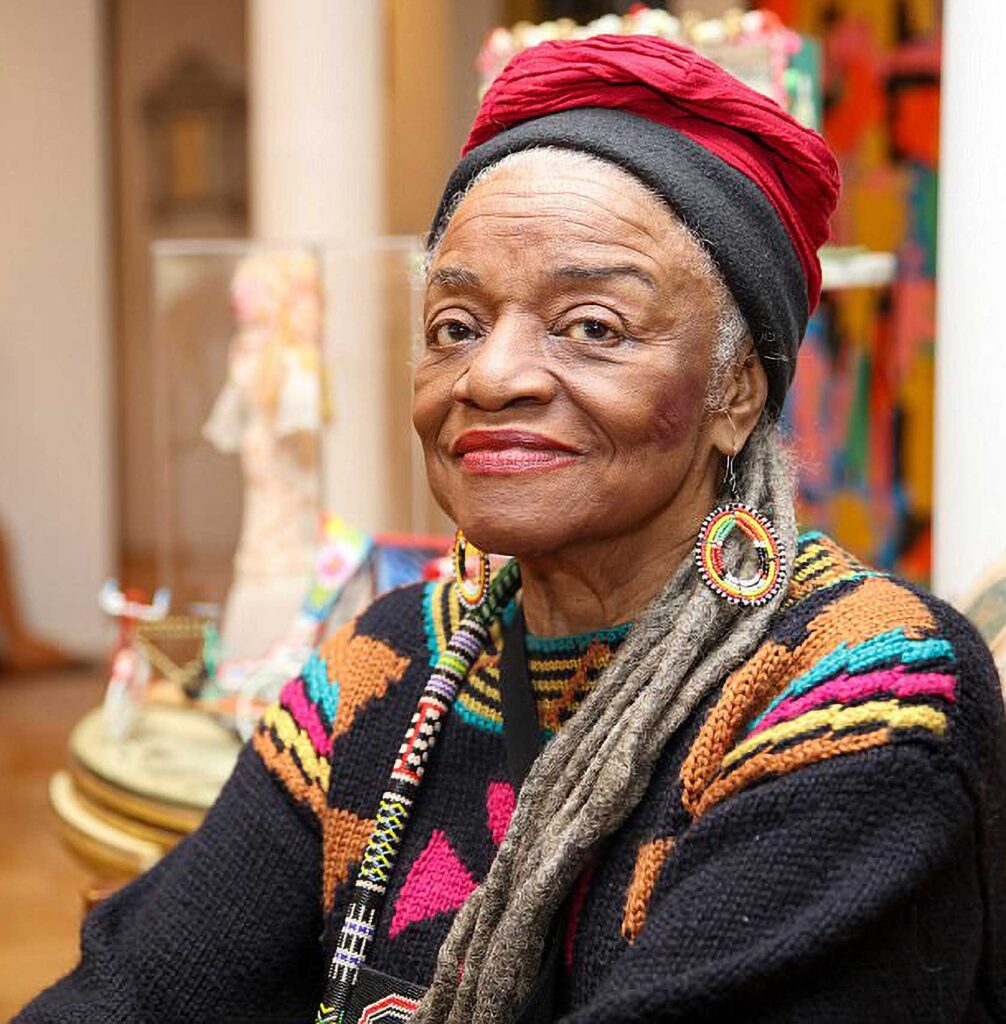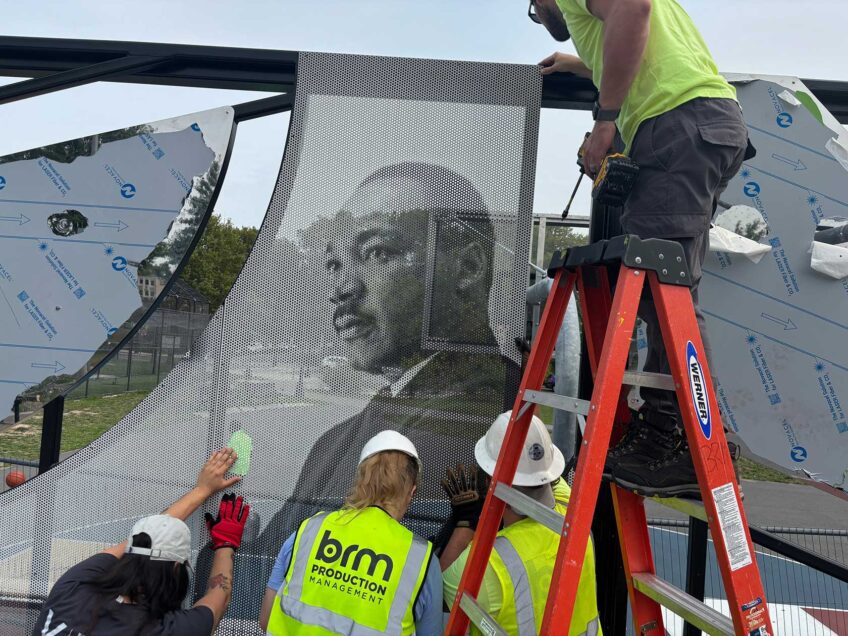‘Faith Ringgold: Freedom to Say What I Please’ at Worcester Art Museum

Renowned American artist, author and activist Faith Ringgold, 93, has been from the start unstoppable. She turned that fact into a subject as she made her way in an unwelcoming white-male art world, transforming everyday materials — fabrics, posters, diaries, quilts — into potent works now in the collections of major museums worldwide.
Born in Harlem in 1930, Ringgold experienced firsthand the vitality of the Harlem Renaissance, and received bachelor’s and master’s degrees in visual art from the City College of New York. Infused with African American history and culture, including the Black matriarchal tradition that nurtured her, her works span story quilts, prints, paintings, sculptures, books and performances.

“Picasso’s Studio,” 1991, acrylic on canvas, printed and tie-dyed fabric. © Faith Ringgold / Artists Rights Society (ARS). PHOTO: COURTESY ACA GALLERIES, NEW YORK
Ringgold is the recipient of more than 80 awards, including 23 honorary doctorates in fine arts, and she remains prominent. In 2019, London’s Serpentine Galleries mounted a major Ringgold solo show. In 2022, her works filled three floors of New York City’s New Museum in the artist’s first hometown retrospective in 40 years.
Now, the Worcester Art Museum is presenting Ringgold’s first solo exhibition in New England in nearly 15 years. Organized by Samantha Cataldo, associate curator of contemporary art, “Faith Ringgold: Freedom to Say What I Please” is on view through March 17. The show offers the pleasure of a close-up experience of 16 artworks by Ringgold in a variety of media — including paintings, prints, textiles and life-size soft sculptures.

Faith Ringgold, United States of Attica, 1972, offset print. © Faith Ringgold / Artists Rights Society (ARS), New York. PHOTO: Courtesy ACA Galleries, New York.
“Picasso’s Studio” (1991), in the first of the exhibition’s two galleries, is a sort of manifesto. Drawn from the museum’s own collection, the work is part of Ringgold’s 12-quilt series “The French Collection” (1991-1997), semi-autobiographical vignettes that follow a young alter-ego in pre-war Paris. Ringgold’s heroine poses in the center of the picture, serene and confident, while Picasso paints her. Behind her stand the fractured, African-influenced cubist figures of Picasso’s iconic “Les Demoiselles d’Avignon” (1907). Bordering the image is the heroine’s handwritten letter to her aunt, which includes the words that give the exhibition its title: “You asked me once why I wanted to become an artist … My art is my freedom to say what I please.”

“Family of Women Series: Bessie,” 1974, mixed media. © Faith Ringgold / Artists Rights Society (ARS). PHOTO: COURTESY ACA GALLERIES, NEW YORK
Nearby, two exuberant ritual figures comprising masks and garments evoke African artistic traditions Ringgold discovered in her travels. “Family of Women Series: Faith” (1973) is a self-portrait adorned with glittering earrings. Its companion piece is a rendering of her Aunt Bessie.
In the second gallery, a storytelling quilt, “Tar Beach #2” (1990), is narrated by an even younger alter-ego, a girl who gains the freedom to fly over Harlem rooftops, the “tar beaches” where her family and friends enjoy their summer evenings. Turned into children’s book the following year, “Tar Beach” won more than 20 awards, including a Caldecott Honor Book and Coretta Scott King Award for illustration.
A sampling of Ringgold’s sharp social commentary includes “Declaration of Freedom and Independence” (2007-8), six pairs of drawings that juxtapose familiar historic events with scenes of trauma or resilience experienced by Black people. One pair shows two founding fathers of civil disobedience at work: Thomas Jefferson drafting the Declaration of Independence, and Martin Luther King Jr. composing “Letter from Birmingham City Jail.”
Extending this encounter with the artist’s wit and warmth, the museum provides a reading nook of books about and by Faith Ringgold, with a scene from “Tar Beach” painted on the wall.






